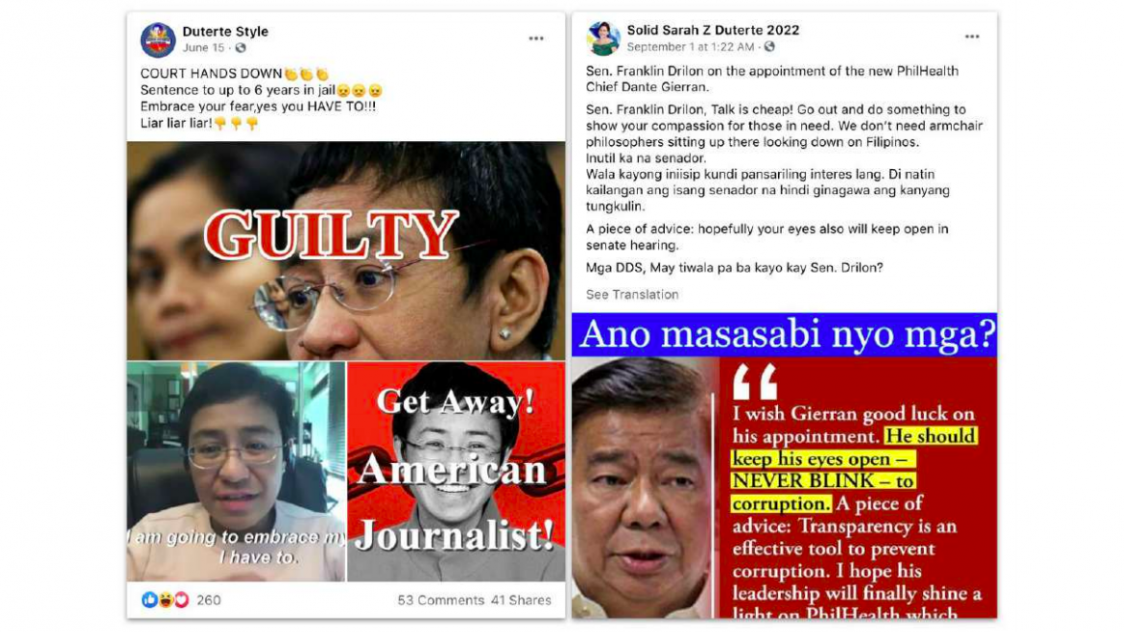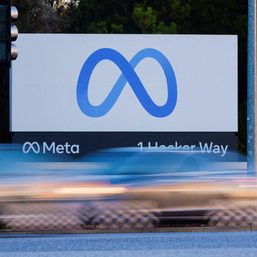SUMMARY
This is AI generated summarization, which may have errors. For context, always refer to the full article.

Facebook on Tuesday, September 22, took down a pro-China coordinated fake account network with origins in China, along with a takedown of a Philippine coordinated fake account network with ties to the military and the police.
The networks were taken down for violating Facebook’s policies against coordinated inauthentic behavior, which is the use of fake accounts, made to look real, in a coordinated campaign to promote messages or a political agenda.
The entire Chinese network taken down consisted of 155 Facebook accounts, 11 pages, 9 groups, and 6 Instagram accounts while the Philippine network consisted of 31 Facebook pages and 77 Facebook and Instagram accounts
Graphika, an independent social analytics firm working with Facebook, details the China network in their report, found here.
The network began in 2016 but its Philippines cluster was found to have started in March 2018, growing through 2019 and 2020.
Startlingly, Graphika said that the Philippines cluster was the operation’s most active or “most-engaged with” cluster of assets “by a considerable margin.”
The content, both from pages and from individual accounts, “praised President Rodrigo Duterte and his family allies, notably his daughter, and the daughter of former president Ferdinand Marcos, Senator Imee Marcos.”
Focus on Imee Marcos
Graphika found that the “focus on Imee Marcos was particularly striking.”
In March and April 2019, about 30 accounts were created in “an extended batch, all of them focusing on the senator.”
“Many of them used the same profile picture and banner – an image from a rally showing Imee Marcos and Sara Duterte side by side and giving the closed-fist gesture of Duterte’s supporters. This was the largest and most obvious batch in the operation.”

Graphika also described a group in the network called Imee Marcos Global Supporter. It had 5 administrators at the time of the takedown, 4 of them run by the operators behind the network. They posted most of the content on the group, until May 2019, when one of the admins “Maria Kiram” congratulated the group for reaching 1,200 members.
The network assets stopped posting at that point – letting members do the posting – until August 2020 when a network asset “Belinda Araula” resumed sharing content from a network page Duterte Style. “This return to direct action may have been an attempt to begin growing the group more quickly or to entice members to move to the Duterte Style page and group,” said Graphika.
Attacking opposition senators, Rappler
The China-based network also attacked critics of the Philippine government and President Rodrigo Duterte.
The targets included opposition senators, Rappler, ABS-CBN news outlets, and Rappler founder and chief executive Maria Ressa.

Graphika also said that while majority of the posts from the Philippine cluster focused on Duterte and his allies and critics, there was also a “significant minority focused on China” which praised China.
Examples include posts showing the benefits of trade with China, and the country’s “generosity” in offering coronavirus vaccines to the Philippines.
“Some posts praised President Duterte for his stance on the South China Sea (also called the West Philippines Sea), after he said that China was “in possession” of the sea.”
A related Twitter account
The network also created a Twitter account called @solid_2022, perhaps owing to the “relative success of the Solid Sarah Z Duterte 2022 group.”
The screen names matched the name of the Facebook asset, and the content being posted was roughly the same, “praising Duterte and his allies, attacking his critics, praising China and decrying the American presence in the Pacific.”
Having a Twitter account is unusual, relative to the broader Chinese operation, Graphika said. The said Twitter account only amassed 762 followers after its creation on March 12, 2020, with 500 of those followers being created since April 2020.
The Philippine cluster was among several parts of the Chinese network, which also included Indonesian, Hong Kong, and US clusters, all of which promote Chinese interests. – Rappler.com
Add a comment
How does this make you feel?






There are no comments yet. Add your comment to start the conversation.